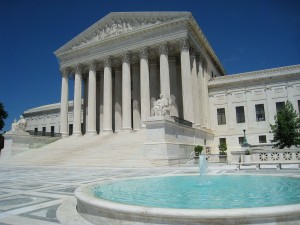Federal Crime Lawyer: Safeguarding Your Rights Versus Serious Federal Charges
Debunking the Refine of Federal Appeals: What You Need to Know
Navigating the elaborate world of government allures can often look like passing through undiscovered waters for those not familiar with the procedure. Recognizing the subtleties of appellate court territory, the intricacies of filing a notice of appeal, presenting a compelling brief, and making a persuasive oral argument are important elements that can substantially affect the result of a situation. By unwinding the layers of intricacy surrounding federal appeals, individuals can gain a clearer understanding right into the devices that control this essential phase of the lawful system.
Comprehending Federal Appeals Process
Looking into the intricate world of the government charms process unveils a organized and systematic journey via the judicial system. Federal allures act as an important mechanism for reviewing choices made by lower courts. Recognizing this procedure is necessary for any individual included in legal process at the government level.
The procedure normally begins with a party disappointed with a lower court's ruling submitting a notice of appeal. This causes an evaluation by a higher court, where a panel of courts evaluates the lawful disagreements presented by both events. Briefs detailing the legal thinking behind each party's placement are submitted, and dental disagreements may be heard to clear up complex concerns.
The appellate court's decision is based on an extensive assessment of the reduced court's process and the debates offered. The courts do not reexamine facts but focus on whether legal mistakes took place that influenced the reduced court's choice. As soon as the appellate court gets to a choice, it can attest, turn around, remand, or customize the lower court's ruling, offering clarity and finality to the legal conflict. Understanding this procedure is essential for browsing the intricacies of federal appeals efficiently.
Appellate Court Jurisdiction Explained
Appellate court jurisdiction refers to the extent of situations that a particular appellate court has the power to examine and decide upon. Unlike trial courts that hear instances for the very first time, appellate courts are limited to reviewing decisions made by reduced courts.
Appellate courts have jurisdiction over particular kinds of situations, commonly those entailing legal mistakes, step-by-step problems, or concerns of regulation as opposed to valid disputes. The territory of appellate courts is usually described in laws and regulations that govern the court system. Recognizing appellate court territory is important for events associated with the charms procedure as it establishes whether a case is eligible for evaluation and the level to which the appellate court can intervene in the lower court's decision.
Declaring a Notification of Allure
The initial step in beginning the government allures procedure involves filing a Notice of Appeal with the suitable appellate court. This vital record formally notifies the court and the other parties involved in the situation that the appealing celebration means to look for an evaluation of the reduced court's choice. Submitting a Notification of Charm is a stringent step-by-step demand that establishes the appellate procedure moving.
When preparing the Notification check my reference of Charm, it is important to make certain conformity with the details regulations and standards of the pertinent appellate court. federal crime attorney. The record has to commonly consist of details such as the situation name, the lower court's name, the date of the judgment being appealed, and a concise declaration showing the premises for the charm

Rundown and Dental Argument
In the appellate procedure, presenting composed briefs and participating in oral debates play pivotal functions in supporting for the appealing party's placement prior to the appellate court. Briefs are extensive lawful documents that detail the events' arguments, legal authorities, and evaluation sustaining their positions. These composed entries provide the court with an in-depth understanding of the realities of the case, the appropriate regulation, and why the appealing event believes the lower court's decision must be rescinded.
Following the submission and evaluation of the briefs, dental debates offer the parties a chance to additional clarify their placements, resolve any questions the appellate courts might have, and emphasize key points from their written briefs. Dental arguments are a possibility for the attorneys to convince the courts with spoken campaigning for and feedbacks to questions from the bench.
Both the created briefs and dental debates are crucial components of the appellate process, allowing parties to present their case thoroughly and compellingly before the appellate court. - federal appeal lawyers
Receiving the Appellate Court Decision
The appellate court's decision is typically provided in a created format and details the court's conclusions on the legal problems offered, the reasoning behind their choice, and the judgment provided. The time frame for getting the appellate court's choice can vary, but courts make every effort to provide timely resolutions. Whether the appellate court verifies, turns around, or remands the lower court's decision, comprehending the effects of the judgment is essential for all celebrations entailed in the appellate process.
Conclusion
Understanding the appellate court jurisdiction, submitting a notification of allure, preparing briefs, and offering dental debates are all essential parts of this procedure. Eventually, getting the appellate court decision can offer clarity and resolution to legal disputes.
As we proceed from recognizing the government charms process to dissecting the intricacies of appellate court jurisdiction, a basic facet comes to light relating to the authority and limitations of these higher courts in the legal landscape. Appellate court territory refers to the range of situations that a particular appellate court has the power to determine and examine upon. Unlike trial courts that hear instances for the very first time, appellate courts are limited to reviewing choices made by lower courts. Understanding appellate court territory is important for parties entailed in the charms process as it establishes whether a situation is eligible for testimonial and the degree to which the appellate court can intervene in the reduced court's decision.
